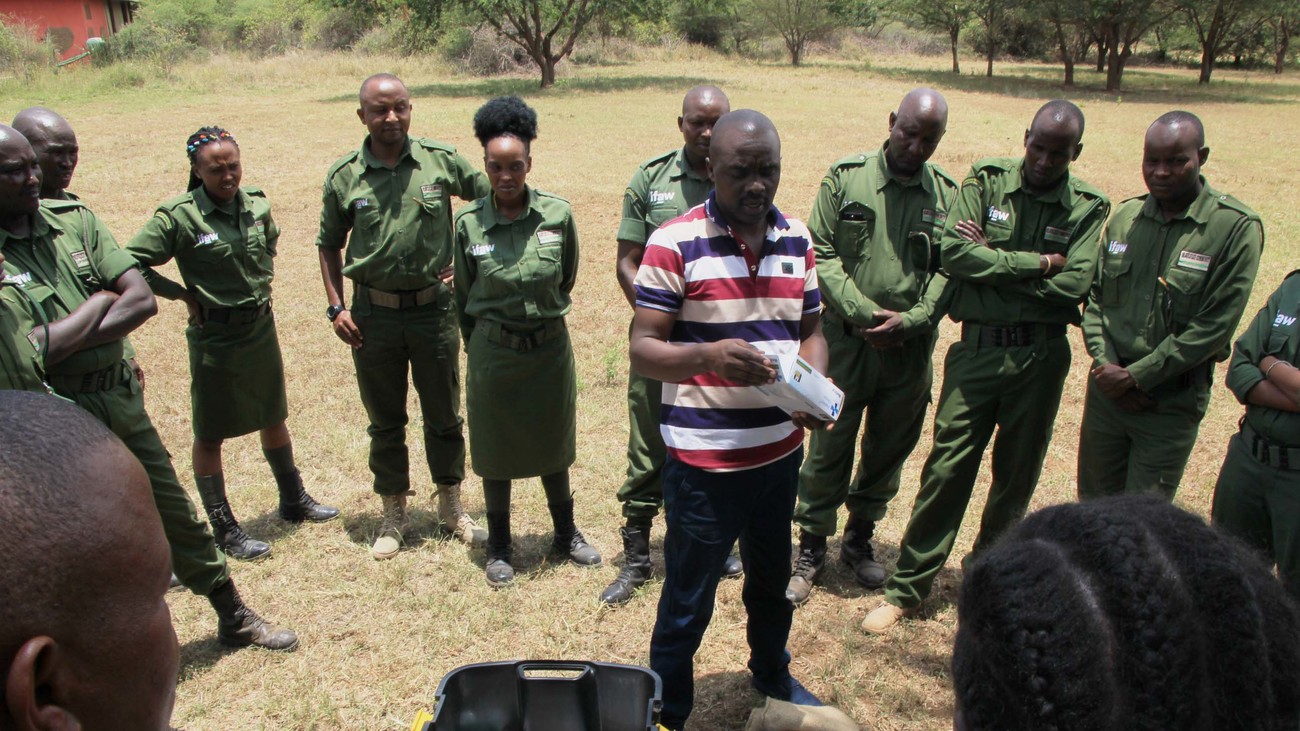Amboseli-Tsavo-Kilimanjaro Landscape
we are giving elephants room to roamOlgulului Community Wildlife Rangers trained as first responders in wildlife crime investigation
Olgulului Community Wildlife Rangers trained as first responders in wildlife crime investigation

Wildlife crime is a multi-billion-dollar transnational form of organized crime. From poaching elephants for ivory to trafficking pangolins for their scales, wildlife crime in East Africa has many complex links to surrounding countries and continents. With Kenya strategically placed as a source and transit point for traffickers across the region, rangers play a key role in preventing and prosecuting wildlife criminals.
One way to combat wildlife trafficking is to equip community rangers with the skills to manage wildlife crime scenes in the time before law enforcement officers even have time to arrive. A ranger is often the first to respond to an incident, particularly within the communities living adjacent to protected areas like Amboseli National Park close to Kenya’s border with Tanzania. Having top-line knowledge of such evidence and careful management of a crime scene can lead to greater preservation, protection and documentation of the evidence needed to support successful prosecutions.
Crime Scene Management Training
This past March, IFAW facilitated a two-day intensive training program in Amboseli, Kenya that helped community wildlife rangers develop new skills as first responders in wildlife crime scene investigations. The goal: to increase conviction rates for wildlife poachers and traffickers.
Thirty community rangers from Olgulului Community Wildlife Rangers (OCWR) were selected for Crime Scene Management Training to upskill their knowledge of crime analysis as first responders. They were trained to use equipment like digital cameras and smartphones to capture quality photographs and document the scenes they may come across in the course of their duties.
“I now know what actions to take if I am the first ranger at a crime scene and why it is important to secure, prevent and control the scene before alerting any relevant authorities,” says Parkimalo Kosianka, an OCWR ranger at Lemomo Base.
At present, there are 89 community rangers divided into eight groups, including Team Lioness, a pioneering all women ranger team strategically located throughout the Olgulului Ololarashi Group Ranch. They patrol the 150,000 acres of secured habitat land whose primary function is to connect significant habitat areas for wildlife and surrounds the Amboseli National Park, bordering Tanzania and monitor wildlife sightings, reporting their day-to-day experiences in the field to secure Kenya’s biodiversity.
Sixty percent of the range of elephants today fall outside of formal protected areas, making it critical that we safeguard all habitats. Team Lioness and the other Olgulului Community Wildlife Rangers play an important role in Room to Roam, an IFAW initiative that seeks to connect and secure habitats to create safe passages for elephants and other wildlife species to move freely.
This activity is part of a project funded by the U.S. State Department Bureau of International Narcotics and Law Enforcement (INL) in collaboration with IFAW, the African Wildlife Foundation (AWF) and the Kenya Wildlife Service (KWS) to support, interdict, investigate and prosecute wildlife crimes to help save Kenya’s iconic wildlife.
Related content
Our work can’t get done without you. Please give what you can to help animals thrive.